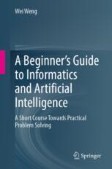Search
Search Results
-
Develo** mathematical knowledge for teaching through lesson planning and technological pedagogical content knowledge among rwandan teacher training college tutors
The current study aimed to sightsee the effectiveness of Mathematical knowledge for teaching (MKT) through lesson planning and technological...

-
Lobachevskii Digital Library in the Scientific Space of Mathematical Knowledge
AbstractDirections in the development and use of digital technologies in scientific activities based on digital platforms, as well as the importance...
-
Learning Support Systems Based on Mathematical Knowledge Management
To cater to the increasingly diverse student bodies, higher education has to personalize education. In times of stagnant educational budgets and...
-
Correspondence between Hierarchical Knowledge Classifiers
AbstractHierarchical, descriptive, and faceted methods of constructing knowledge classifiers and also the classification of knowledge using...
-
MultiHop attention for knowledge diagnosis of mathematics examination
Intelligent educational diagnosis can effectively promote the development of artificial intelligence in education. The knowledge diagnosis of...

-
Mathematical Preparation
In this chapter, we describe the mathematical knowledge necessary for understanding this book. First, we discuss matrices, open sets, closed sets,...
-
CoolGust: knowledge representation learning with commonsense knowledge guidelines and constraints
Representation learning serves as a crucial link between knowledge graphs and neural models. Knowledge graphs are typical symbolic models and require...

-
Artificial Intelligence—Mathematical Modeling
Within the realm of problem solving, mathematical modeling is an essential process preceding the application of artificial intelligence (AI) or...
-
Using different digital tools in designing and solving mathematical modelling problems
While existing studies acknowledge the importance of using technology in the mathematical modelling process, questions about how to integrate digital...

-
Fusing structural information with knowledge enhanced text representation for knowledge graph completion
Although knowledge graphs store a large number of facts in the form of triplets, they are still limited by incompleteness. Hence, Knowledge Graph...

-
Mathematical Preparation
In this chapter, we describe the mathematical knowledge necessary for understanding this book. First, we discuss matrices, open sets, closed sets,...
-
M2R: From Mathematical Models to Resource Description Framework
Domain-specific knowledge graphs usually have requirements for deeper and more accurate knowledge. Existing knowledge graphs in academics mainly...
-
Knowledge Graphs
We conclude Part I of the book with a short transition to knowledge graphs, which we put in context in the previous nine chapters. We make an...
-
Explicable knowledge graph (X-KG): generating knowledge graphs for explainable artificial intelligence and querying them by translating natural language queries to SPARQL
Knowledge graphs represent a potent instrument for the classification and exhibition of data, as they encompass a systematic approach for the...

-
Efficient generator of mathematical expressions for symbolic regression
We propose an approach to symbolic regression based on a novel variational autoencoder for generating hierarchical structures, HVAE. It combines...

-
Mathematical attitudes transformation when introducing GeoGebra in the secondary classroom
The mathematical-related affect research agenda demands studies on the affect-cognition relationship, as well as interventions aimed at improving...

-
Mathematical Problems
In this chapter, you start learning some basics about a few mathematical operations, including prime numbers and the Roman numeral system....
-
Effects of AR mathematical picture books on primary school students' geometric thinking, cognitive load and flow experience
As an important branch of mathematics, geometry plays a very significant role in develo** students’ thinking, but many students need to improve...

-
Philosophical and Mathematical Background
This chapter establishes the philosophical-mathematical foundation of Soft logic. We briefly describe Immanuel Kant’s epistemology (Kant 1838), which...
-
Mathematical Problems
In this chapter, you start learning some basics about a few mathematical operations, including prime numbers and the Roman numeral system....
